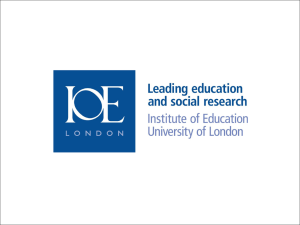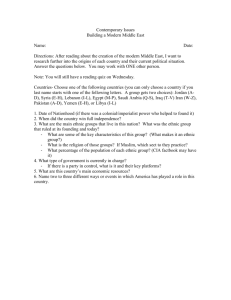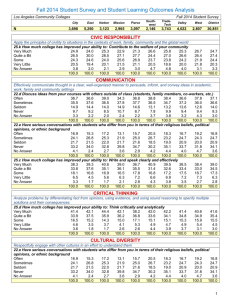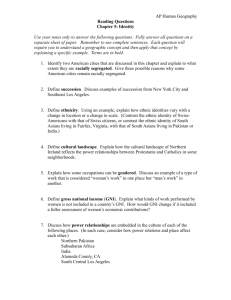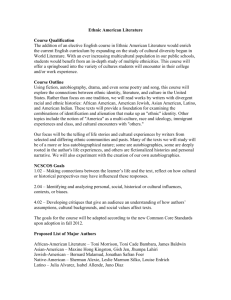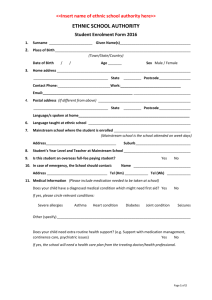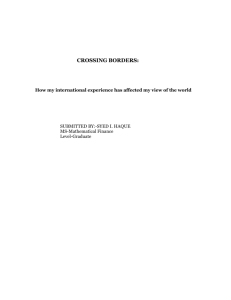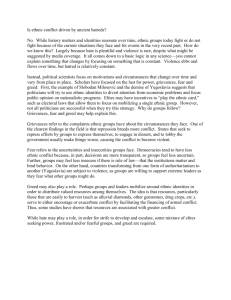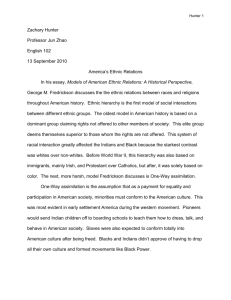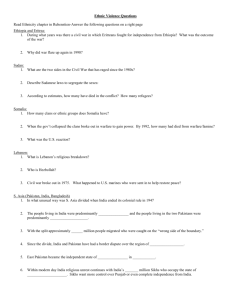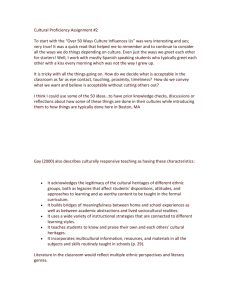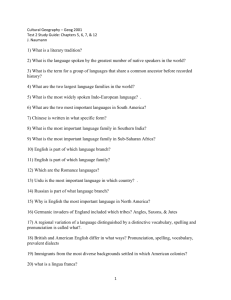COURSE: Ethnic Studies NUMBER OF CREDITS: 10 Duration: Year
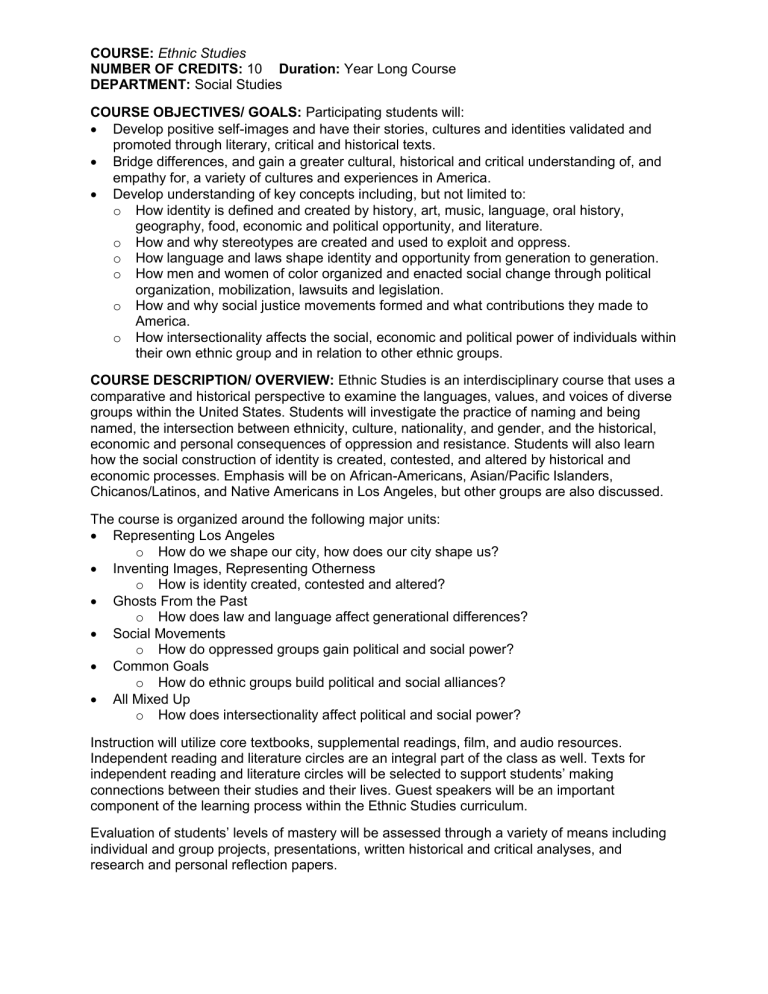
COURSE: Ethnic Studies
NUMBER OF CREDITS: 10 Duration: Year Long Course
DEPARTMENT: Social Studies
COURSE OBJECTIVES/ GOALS: Participating students will:
Develop positive self-images and have their stories, cultures and identities validated and promoted through literary, critical and historical texts.
Bridge differences, and gain a greater cultural, historical and critical understanding of, and empathy for, a variety of cultures and experiences in America.
Develop understanding of key concepts including, but not limited to: o How identity is defined and created by history, art, music, language, oral history, geography, food, economic and political opportunity, and literature. o How and why stereotypes are created and used to exploit and oppress. o How language and laws shape identity and opportunity from generation to generation. o How men and women of color organized and enacted social change through political organization, mobilization, lawsuits and legislation. o How and why social justice movements formed and what contributions they made to
America. o How intersectionality affects the social, economic and political power of individuals within their own ethnic group and in relation to other ethnic groups.
COURSE DESCRIPTION/ OVERVIEW: Ethnic Studies is an interdisciplinary course that uses a comparative and historical perspective to examine the languages, values, and voices of diverse groups within the United States. Students will investigate the practice of naming and being named, the intersection between ethnicity, culture, nationality, and gender, and the historical, economic and personal consequences of oppression and resistance. Students will also learn how the social construction of identity is created, contested, and altered by historical and economic processes. Emphasis will be on African-Americans, Asian/Pacific Islanders,
Chicanos/Latinos, and Native Americans in Los Angeles, but other groups are also discussed.
The course is organized around the following major units:
Representing Los Angeles o How do we shape our city, how does our city shape us?
Inventing Images, Representing Otherness o How is identity created, contested and altered?
Ghosts From the Past o How does law and language affect generational differences?
Social Movements o How do oppressed groups gain political and social power?
Common Goals o How do ethnic groups build political and social alliances?
All Mixed Up o How does intersectionality affect political and social power?
Instruction will utilize core textbooks, supplemental readings, film, and audio resources.
Independent reading and literature circles are an integral part of the class as well. Texts for independent reading and literature circles will be selected to support students’ making connections between their studies and their lives. Guest speakers will be an important component of the learning process within the Ethnic Studies curriculum.
Evaluation of students’ levels of mastery will be assessed through a variety of means including individual and group projects, presentations, written historical and critical analyses, and research and personal reflection papers.



